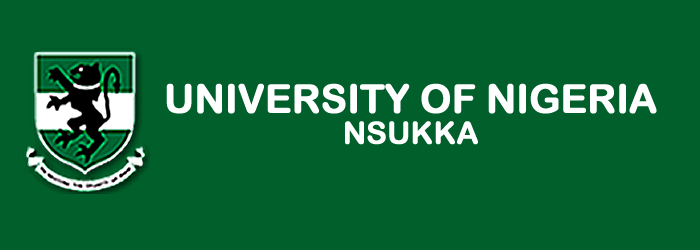Philosophy, Objectives, and Scope
The Faculty of Education aims at producing graduate teachers who are not only equipped with knowledge, skills, and competencies in all the modern aspects of their discipline to impart on learners, but are also aware of the particular needs of Nigeria and Africa in general in building lifelong learners in their special areas. In the faculty, the various degree programmes lay emphasis on the subject areas of the Departments of Adult Education, Arts Education, Educational Foundations, Human Kinetics and Health Education, Library and Information Science, Science Education, and Social Science Education. Specifically, the focus on making the prospective educator aware of the educational problems of the immediate environment is reflected in the inclusion of a ‘Research Project’ on an education-centred topic as one of the compulsory courses in the final year of every department in the faculty.
Job Opportunities:
There has been continuous emphasis on producing teachers who are well-baked and tech-savvy, having undergone the procedures and provisions for acquisition of knowledge, attitudes, behaviours, and skills which will enable them to perform their tasks effectively in the classroom, school, and the community at large. Graduate educators are also highly needed for the provision of basic teaching knowledge and skills which are lacking with regards to imparting information literacy and lifelong learning to pupils, students and adults alike, especially in Nigeria and Africa in general. There is also need to equip graduate teachers with skills that will help them create new strategies to help bring back pupils’ and students’ interest in the classroom and in learning, while managing the classroom and learning environment.
There is also need for trained personnel to conduct studies in educational issues, problems and prospects especially in the areas of Education English, Igbo, Music, French, Creative Arts, Fine and Applied Arts, Religion, and History; Adult Education and Administration, Community Development, Adult Literacy Extension, Distance Education, Cooperative Education; Education Economics, Geographical and Environmental Studies, Political Science, Social Studies, Biology, Chemistry, Mathematics, Physics, Integrated Science, Measurement and Evaluation, Psychology, and Sociology; Special Education, Educational Administration and Planning, Childhood Education, History and Philosophy of Education, Guidance and Counselling, Information Resource Management, Industrial Information Systems, Records and Archives Management, Data Science, Academic, Special and School Librarianship, Information Security, Public Health Education, Emotional and Mental Health Education, Occupational and Industrial Health Education, School Health Education, Sports Psychology, Exercise Physiology, Administration and Management in Human Kinetics and Sports, Sociology of Sports, Atypical Physical Education, Recreation, Leisure and Tourism and Curriculum Studies in Physical Education, all from educational perspectives. Schools, Colleges and Institutions of higher learning are bound to need increasing number of trained and qualified teachers in the educational systems for more effective teaching and learning.
Graduates of the Faculty of Education in any of the above areas of specialty may choose careers in primary or secondary schools, colleges of education, or polytechnics. Also, Faculty of Education graduates may, at the upper spectrum, find themselves in a university academic environment in which they are required to possess a minimum of a second class upper degree. Education graduates are also finding themselves in other educational and information-oriented institutions and organizations to beat the trend in time and space. These are non-educational openings for graduates of Adult Education, Arts Education, Educational Foundations, Human Kinetics and Health Education, Library and Information Science, Science Education, and Social Science Education. Graduates interested in other aspects of learning have gone further to acquire training in such areas; most especially, a teacher is equipped to effectively impart positive learning for more active participation in society. The importance of this cannot be overemphasized in the present day African society where unemployment is continuously increasing. One major way of overcoming this is diversification and technological advancement. Learning is being affected by numerous challenges. It behoves, therefore, the graduates of the faculty of education to check on the quality of education and learning in general, whether in government-owned or private-owned institutions and organizations, thus ensuring effective learning for more active leadership and engagement in the society.
Dean, Faculty of Education.


